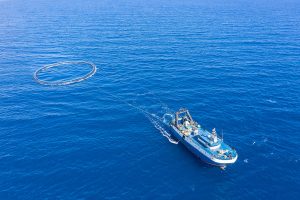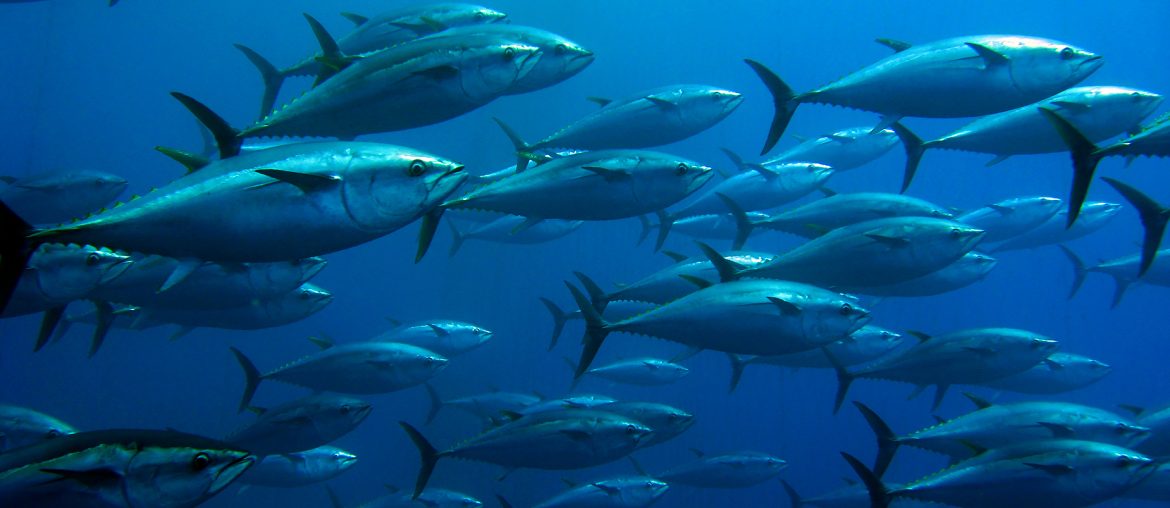A police investigation and magisterial inquiry into a multimillion tuna smuggling racket in which tuna that originated mostly in Malta was smuggled to Spain using duplicate paperwork appears to have stalled, an investigation by this website has found out.
These revelations come in the heels of escalation of legal proceedings against Malta by the EU Commission, which said “that Malta has failed to put in place an effective monitoring, control and inspection system for Bluefin tuna farming activities.”

EU Commission officials who asked not to be named have told this website that concern about the situation in Malta is exacerbated by the opaqueness about what is going on in the country’s tuna farming industry, which is the largest in the world. The commission is now one step short of taking Malta to the EU’s European Court of Justice.
The smuggling racket between Malta and Spain was uncovered in late 2018 in a Europol-led international investigation called Operation Tarantelo. Europol had estimated that 2.5 million kilograms of tuna, worth around €12 million, were being smuggled into Spain annually, mostly from Malta.
In Malta this was allegedly mostly sourced from Mare Blu Farm, although at least one other farm has also been implicated according to judicial sources in Spain. The tuna was trucked overland to a fish supplier that is owned by the same business group that owns Mare Blu, called Grupo Ricardo Fuentes e Hijos. Investigations showed that this was accomplished by duplicate paperwork: for every shipment of tuna dispatched to Japan (which is where most of Malta’s farmed or ‘fattened’ tuna is exported to), documents were being photocopied to move the same amount of illegally-caught tuna overland on trucks to Spain.
The revelations led to the suspension of then director general of Department of Fisheries and Aquaculture Andreina Fenech Farrugia. Documents seen by this website show that, although Fenech Farrugia remains employed by the department, she is now on longterm unpaid leave.
The police confirmed to this website that “police investigations as well as the magisterial inquiry are still ongoing.”

It is understood that investigations in Spain are also still ongoing. Spanish judicial sources told an investigation led by the Investigative Reporting Project Italy (IRPI) last summer that there had been no reply or cooperation to a letter rogatory sent to Malta. Letter rogatory are official judicial requests to the judiciary of a foreign jurisdiction for specific information about a specific case.
It could not be established what specific information was sought, and whether the magistrate at Malta’s end has since replied – or, if not, why not. Magisterial inquiries in Malta are secret procedures. A high proportion of them tend to drag on for various possible reasons, particularly due to court-appointed experts who take time to complete their tasks, overworked magistrates, and a quest for elusive evidence.
Sources within the EU Commission, and separately the International Commission for the Conservation of Atlantic Tuna (ICCAT), have been expressing their concern over inadequate oversight in Malta, especially given the country’s primary importance in the tuna fattening industry.
Malta has a tuna farming capacity of 12,200 tons – the largest in the world – in five farms. Tuna caught mostly by Italian and French purse seine fishermen is transferred to Malta where it is fattened in Malta’s farms – the floating cages of four of the farms are situated around 6km off the coast of Marsascala at Is-Sikka tan-Nofs, while the fourth has cages in the northwest of the island – before it is slaughtered and most of it shipped to Japan, and other countries to a lesser extent.

In reality, tuna gains little weight, and “fattening” mostly involves feeding the tuna mackerel and herring to increase the fat to meat ratio to the level that is sought after in Japan’s sushi and sashimi market.
Scientists and environmentalists are disdainful of the industry given the low feed-conversion ratio – it takes around 20kg of mackerel or herring, which are edible fishes, for a tuna to gain 1kg of weight – a feed conversion ratio, or biomass loss, that is thought to be the highest in any farming scenario in the world.
It’s a highly-lucrative business: tuna can fetch several dozen euros per kilogram, making a typical tuna (weighing more than 100kg) worth thousands of euros. Tuna farming or ranching has become one of Malta’s largest export industries, generating around €150 million annually.
EU Commission officials told this website that they have not held any inspections in Maltese tuna farms since the advent of COVID – and this has added to the opacity, or lack of visibility, of the situation in Malta.
In the escalation of legal proceedings it had initiated in May of 2020, last November the EU Commission sent a “reasoned opinion” to Malta. The Commission accused Malta of ‘failing’ to put in place “effective monitoring, control, and inspections” on tuna farms.
It added: “The Commission considers that Malta has not taken the necessary steps to address all of the deficiencies identified by the Commission in several audit and verification missions, including failure to control consignments of Bluefin tuna leaving Malta, delayed investigations and failure to take action on operators in case of non-compliance.”
The Commission’s next step, if it deems it viable or necessary, is to refer the case to the EU’s European Court of Justice.

In a meeting last November, one week after the EU Commission sent the reasoned opinion to Malta, ICCAT said that the “recovery plan” for the bluefin tuna launched 15 years ago had led to a population increase, and countries could start shifting towards “management” of the fishery. To this end, it adopted a raft of new measures to tighten control and monitoring of tuna fattening operations.
These enhanced control measures supersede an earlier set of measures agreed in 2017 and 2018 that Malta had failed to implement. The concern among officials is that Malta will also similarly fail to implement the new tighter measures.
The new measures create three levels of control and supervision. ICCAT-engaged regional observers have to be present during fishing, transfers, and slaughtering of tuna, while national observers (who are engaged by countries specifically) have to be present during towing of ‘carrier cages’ or ‘transport cages’ from fishing grounds to farms in Malta. Moreover, every country would have to have a Competent Authority that has to maintain presence during transfers of tuna from carrier cages to farm cages. After the transfer, the official from the Competent Authority would then have to “seal” the cage and only he or she can break the seal during slaughter (or prior to that if there is a reason to do so).
Last year IRPI received a series of anonymous emails on corruption in Malta’s regional and national observer system. The amount of detail in the emails could only have come from someone who, as he or she claimed, worked as an observer. Yet the IRPI-led investigation was not able to find any evidence of wrongdoing.
IRPI’s investigations are ongoing.
This investigation has been simultaneously published on JournalismPlus and IRPImedia





